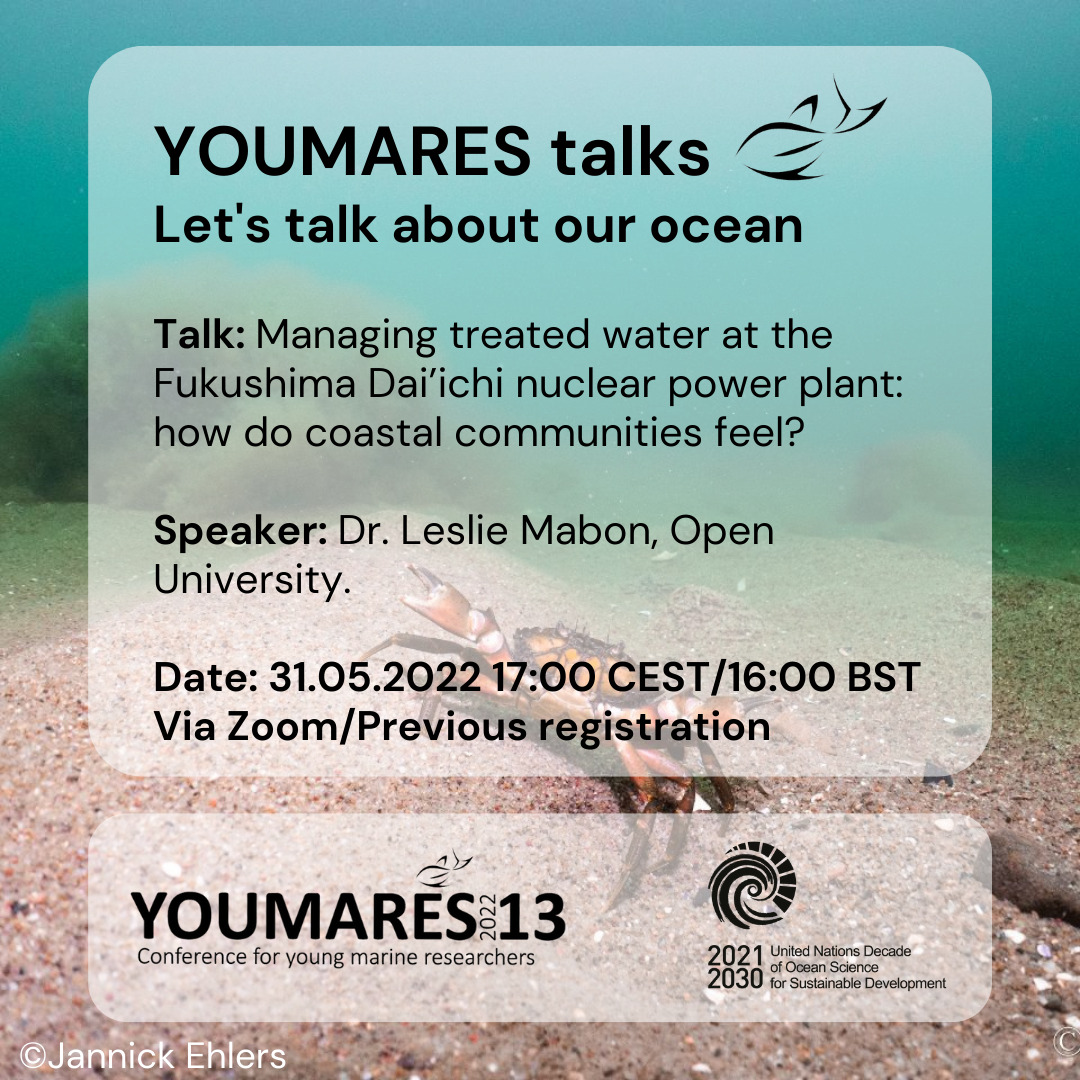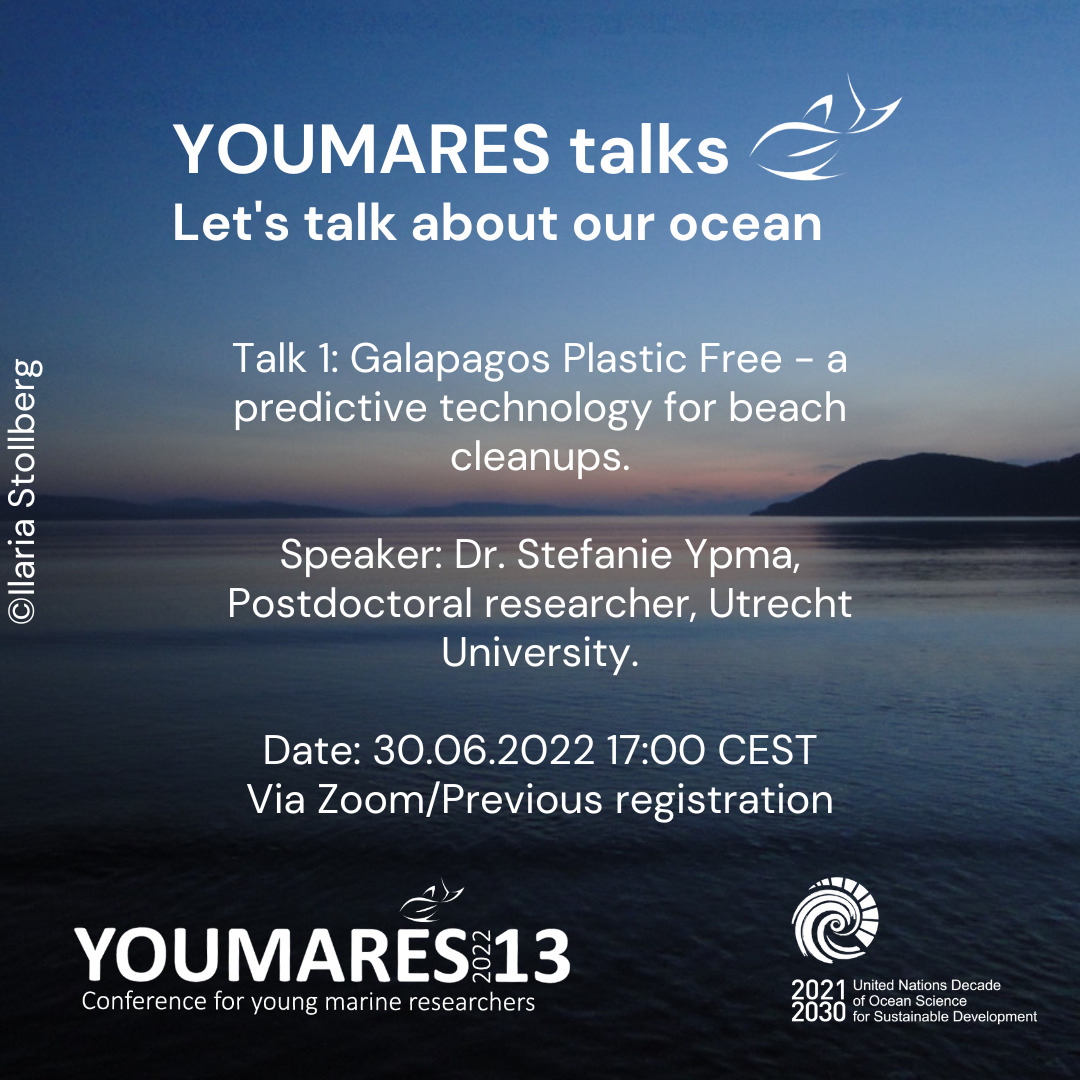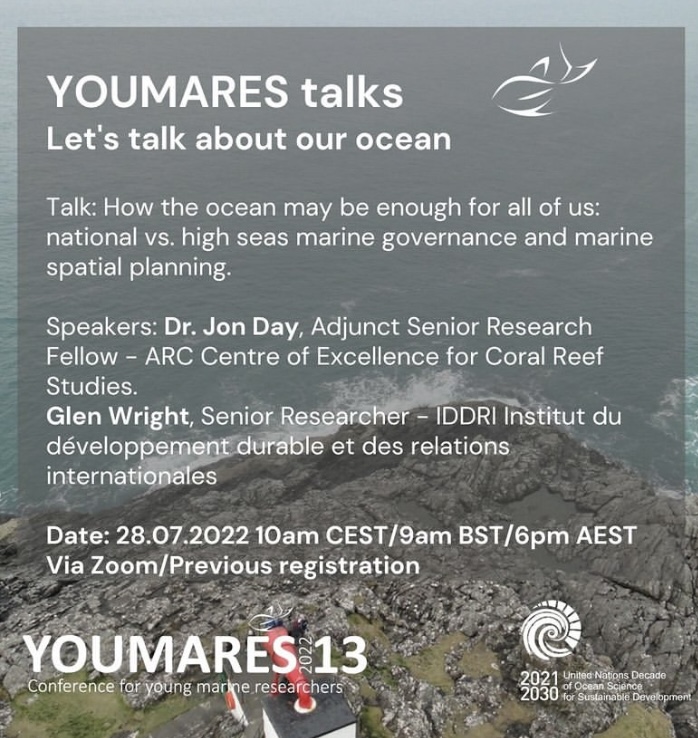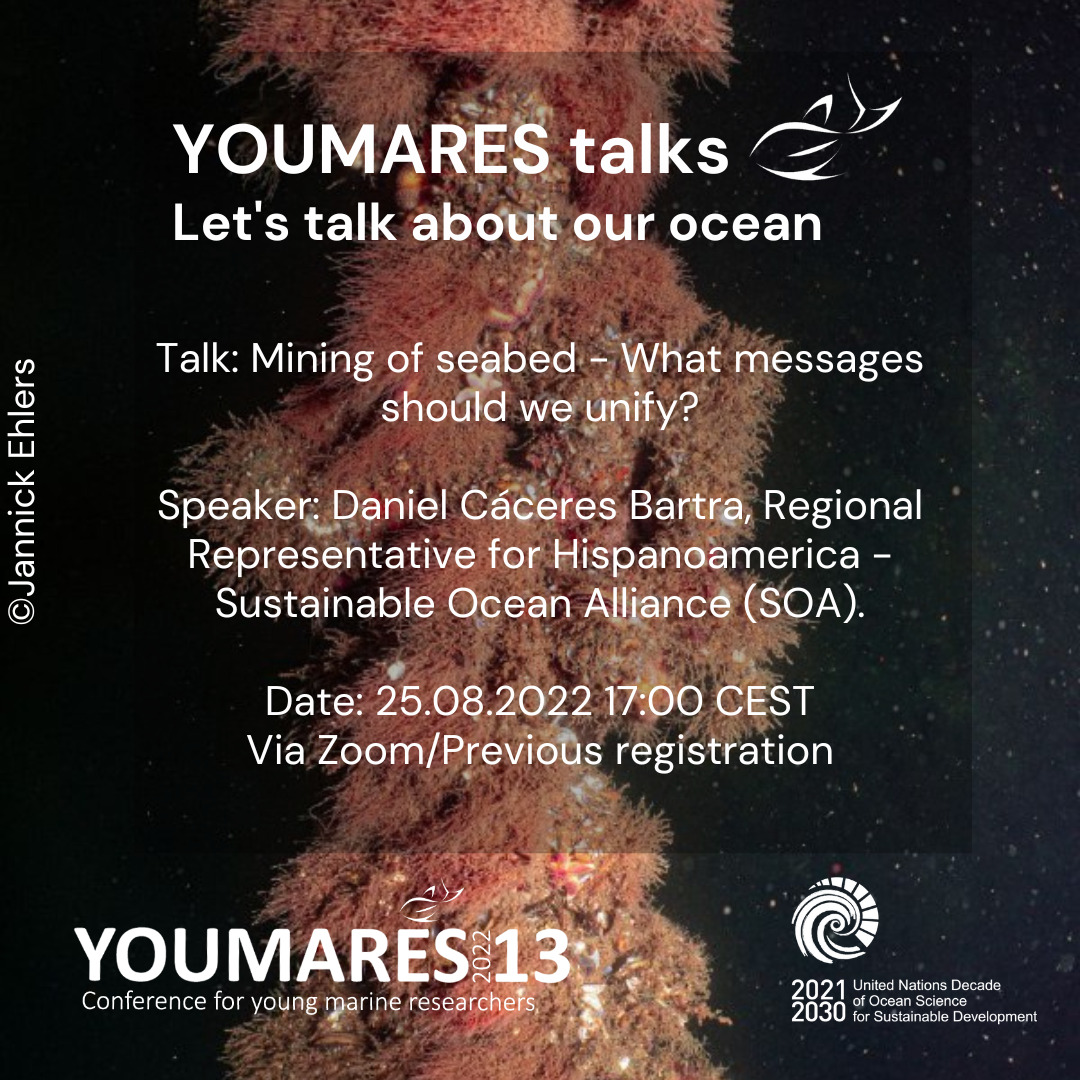YOUMARES Talks 2022
Let’s talk about our oceans
This year we welcomed a series of online talks in the run up to the YOUMARES 13 Conference.

Talk 1:
Managing treated water at the Fukushima Dai’ichi nuclear power plant: how do coastal communities feel?
Speaker: Dr Leslie Mabon (Lecturer – Open University)
More than ten years have passed since the Fukushima Dai’ichi nuclear accident in Japan – but the question of what to do with the large quantities of treated water containing low-level radioactive material stored on site remains. In spring 2022, the Japanese Government approved a plan to release the treated water into the Pacific Ocean. Despite significant scrutiny from international organisations and other nations, insufficient attention has been given internationally at the science-policy interface to the interests of a key stakeholder – the coastal fishing communities closest to the plant itself. More explicit recognition internationally of why fishers and residents may harbour concerns over the releases is necessary for the global community of researchers and institutions working at the science-policy interface for Fukushima treated water to fully understand the local context within which their recommendations on management of treated water are received.

Talk 2:
Galapagos Plastic Free – a predictive technology for beach cleanups
Speaker: Dr. S. L. (Stefanie) Ypma (Postdoc – Utrecht University)
Stefanie and her team are working on developing a predictive technology that will allow the Directorate of the Galapagos National Park to focus cleanup efforts and to efficiently remove plastic pollution before it impacts sensitive wildlife and habitats. Combining ocean data, wind, wave and tidal models and using a particle tracking tool, they set out to answer questions such as where does the plastic come from, how does it get there and when does it arrive? These findings will help them to develop a marine plastics forecast: a ‘where and when to clean up’-tool for the local park rangers. The aim is to show that the methods developed for the Galapagos can be applied to island nations and archipelagos worldwide to tackle the global plastic pollution challenge.

Talk 3:
How the ocean may be enough for all of us: national vs. high seas marine governance and marine spatial planning.
Speakers: Dr. Jon Day (James Cook University), Glen Wright (IRRDI)
Join this workshop to find out about Marine Spatial Planning (MSP) at national and international levels of governance. Discuss similarities and differences between Exclusive Economic Zones (EEZ) and Areas Beyond National Jurisdiction (ABNJ) with researchers from both sides. Jon Day was heavily involved in the management of the Great Barrier Reef Marine Park for 40 years and is an adjunct senior research fellow of James Cook University, Australia. Glen Wright is involved as senior research fellow in various aspects of marine policy and ocean governance, specialising in international negotiations, the high seas, and marine spatial planning at the Institute for Sustainable Development and International Relations (IDDRI), based in Paris. Their combined experience shall raise and answer questions regarding the learned lessons of in situ Marine Spatial Planning and about the destiny which may await the high seas.
Recording Coming Soon

Talk 4:
Mining of seabed – What messages should we unify?
Speaker: Daniel Cáceres Bartra (Sustainable Ocean Alliance Regional Representative for Hispanoamerica)
The deep sea ecosystems are the least known marine ecosystem we have. Deep-seabed mining is the first human extractive industry we will decide on as a global common and it’s also the first activity we can plan and regulate before it begins. As civil society It’s important that we have a common msg of demands. In this discussion let’s present what message we are aligning and demanding to the International Seabed Authority (ISA), autonomous international organisation established to organise and control the activities of exploration and exploitation of resources in the seabed and ocean and its subsoil beyond the limits of national jurisdiction.
